The Deputy Governor of Marib, Dr. Abdurabuh Muftah, inaugurated 15 water projects today in the city and valley districts. The total cost of these projects reached $1,317,704, funded by UNICEF.
Overview of the Initiatives
Dr. Muftah, alongside Hussein bin Jalal, Director General of the Water and Sanitation Institution, and Dr. Ali Hothal, Director General of the Rural Water Authority, launched six projects from the Water and Sanitation Institution and three from the Rural Water Authority. The total investment for these initiatives amounted to $689,292, benefiting 299,670 individuals, including internally displaced persons and local communities.
The water projects include the construction of concrete water towers, main pumping lines, distribution networks, service points, and well drilling. Additionally, the projects feature pumping units, control rooms, and security facilities.
New Projects Announced
During the event, Dr. Muftah also announced the commencement of six more water projects in the city district, funded by the U.S. Agency for International Development (USAID) through UNICEF. The total funding for these initiatives is $628,412.
Importance of Sustainable Water Projects
Dr. Muftah highlighted the significance of these sustainable projects, which address critical needs faced by displaced individuals and host communities in a province that has absorbed over 62% of Yemen’s displaced population. The province’s population has surged to 3 million. He emphasized that these projects will provide thousands of families in camps and surrounding communities with access to safe and clean water. This access will improve their health, enhance their immunity against diseases, and contribute to a better living environment.
Acknowledgment of Humanitarian Efforts
Dr. Muftah praised UNICEF’s humanitarian partnership and its interventions, which support local authorities in enhancing services and addressing the growing humanitarian needs of the province’s residents. He noted that these efforts alleviate the suffering of citizens amid the ongoing humanitarian crisis, exacerbated by economic collapse, deteriorating living conditions, climate change, and reduced humanitarian interventions due to funding shortages.
Call for Sustainable Humanitarian Projects
Dr. Muftah stressed the need to focus on sustainable humanitarian projects that aid recovery and meet citizens’ needs while alleviating their hardships. He called for enhancing the water sector’s capacity to expand coverage and benefit a larger number of recipients.
In conclusion, the launch of these water projects represents a significant step toward improving water access in Marib, ultimately supporting the well-being of its residents.
To follow the news in Arabic
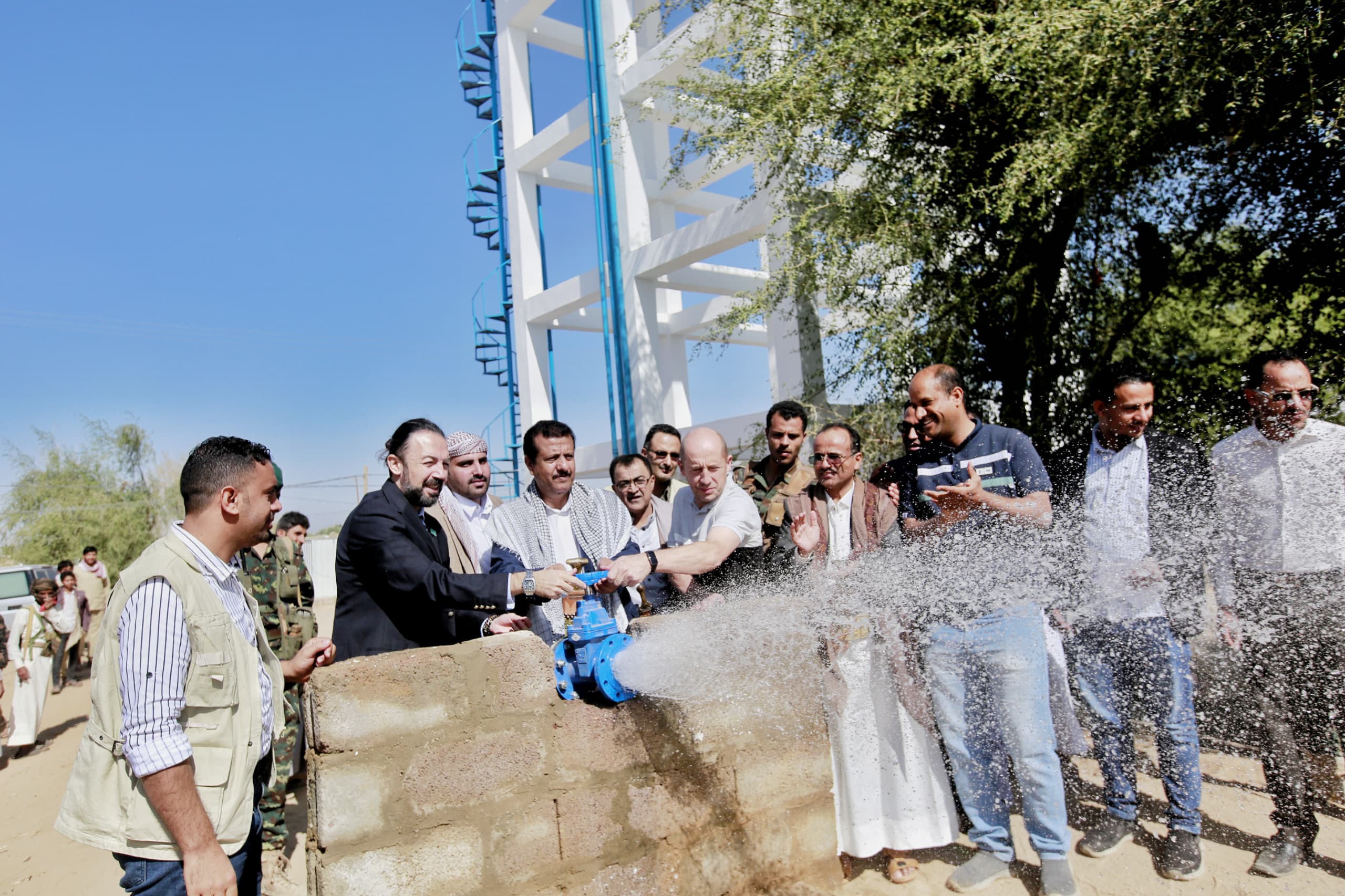
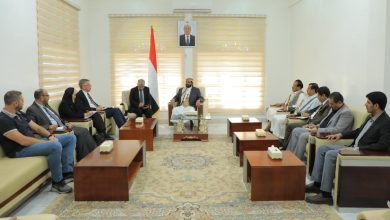 Al-Aradah discusses military and security developments with the UN envoy’s military advisor and their impact on the peace process.
Al-Aradah discusses military and security developments with the UN envoy’s military advisor and their impact on the peace process.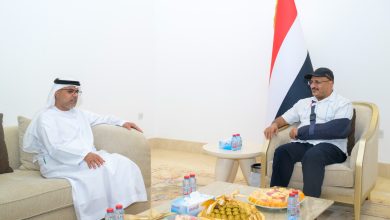 Tariq Saleh discusses the latest developments with the UAE ambassador.
Tariq Saleh discusses the latest developments with the UAE ambassador.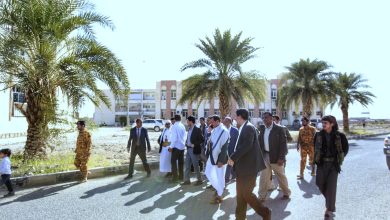 Mareb officials and the Technical Education Authority launch the furnishing of the Community College, funded by Kuwait.
Mareb officials and the Technical Education Authority launch the furnishing of the Community College, funded by Kuwait.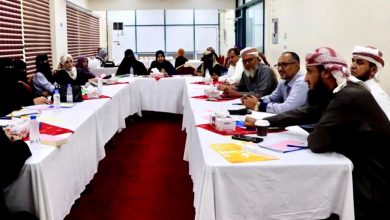 Workshop on violence against girls concludes in Aden, focusing on awareness and prevention strategies.
Workshop on violence against girls concludes in Aden, focusing on awareness and prevention strategies.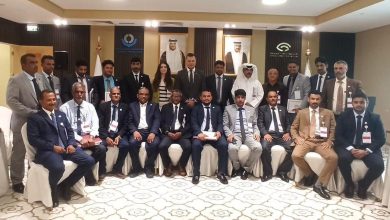 Training customs personnel in Qatar on monitoring strategic goods.
Training customs personnel in Qatar on monitoring strategic goods.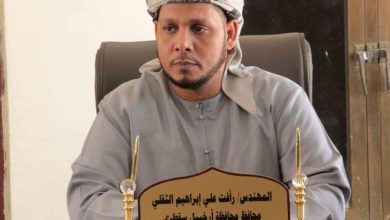 Al-Thuqali discusses efforts to document the Socotri language and directs preparations for the heavy vehicles site at the port.
Al-Thuqali discusses efforts to document the Socotri language and directs preparations for the heavy vehicles site at the port.